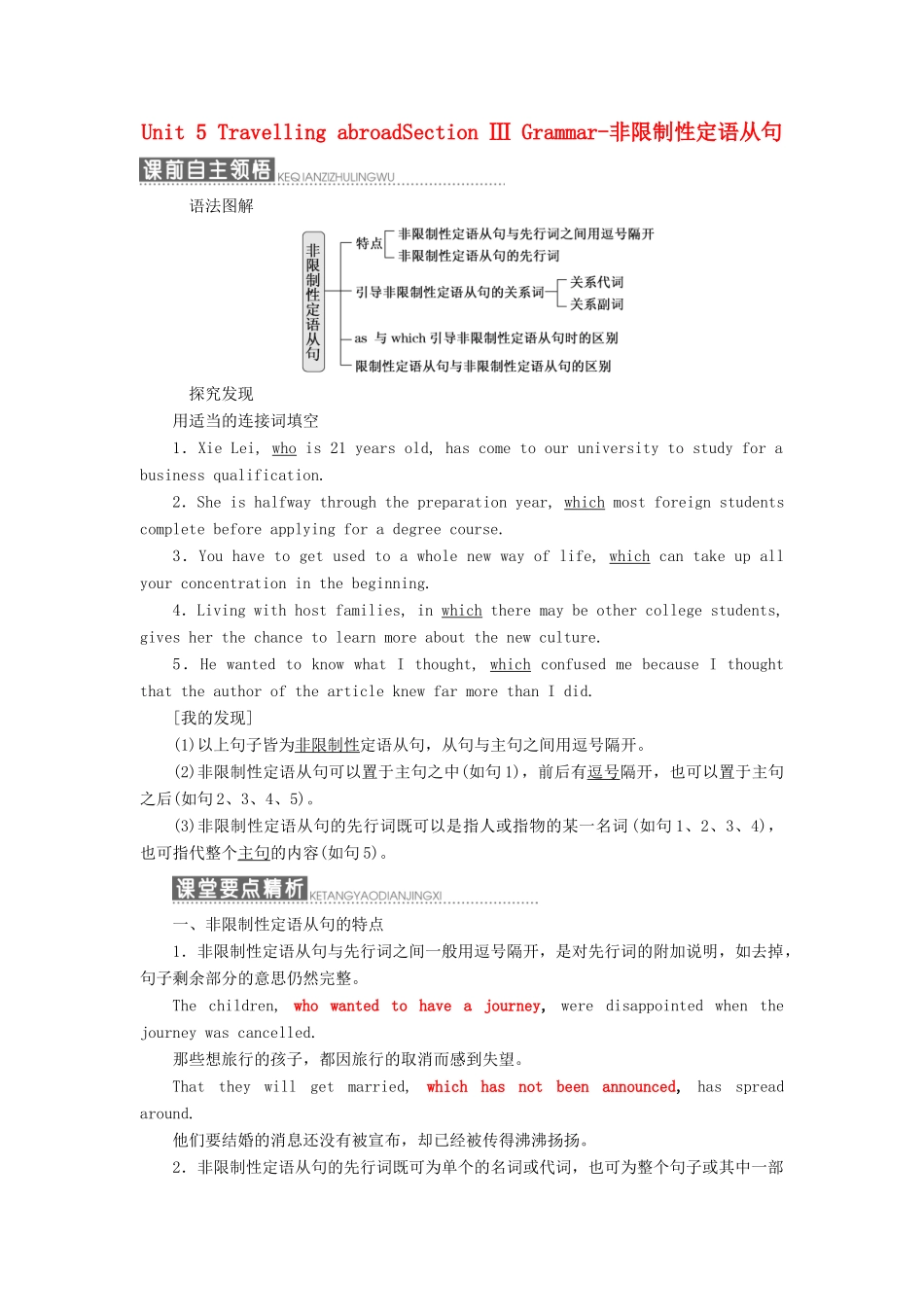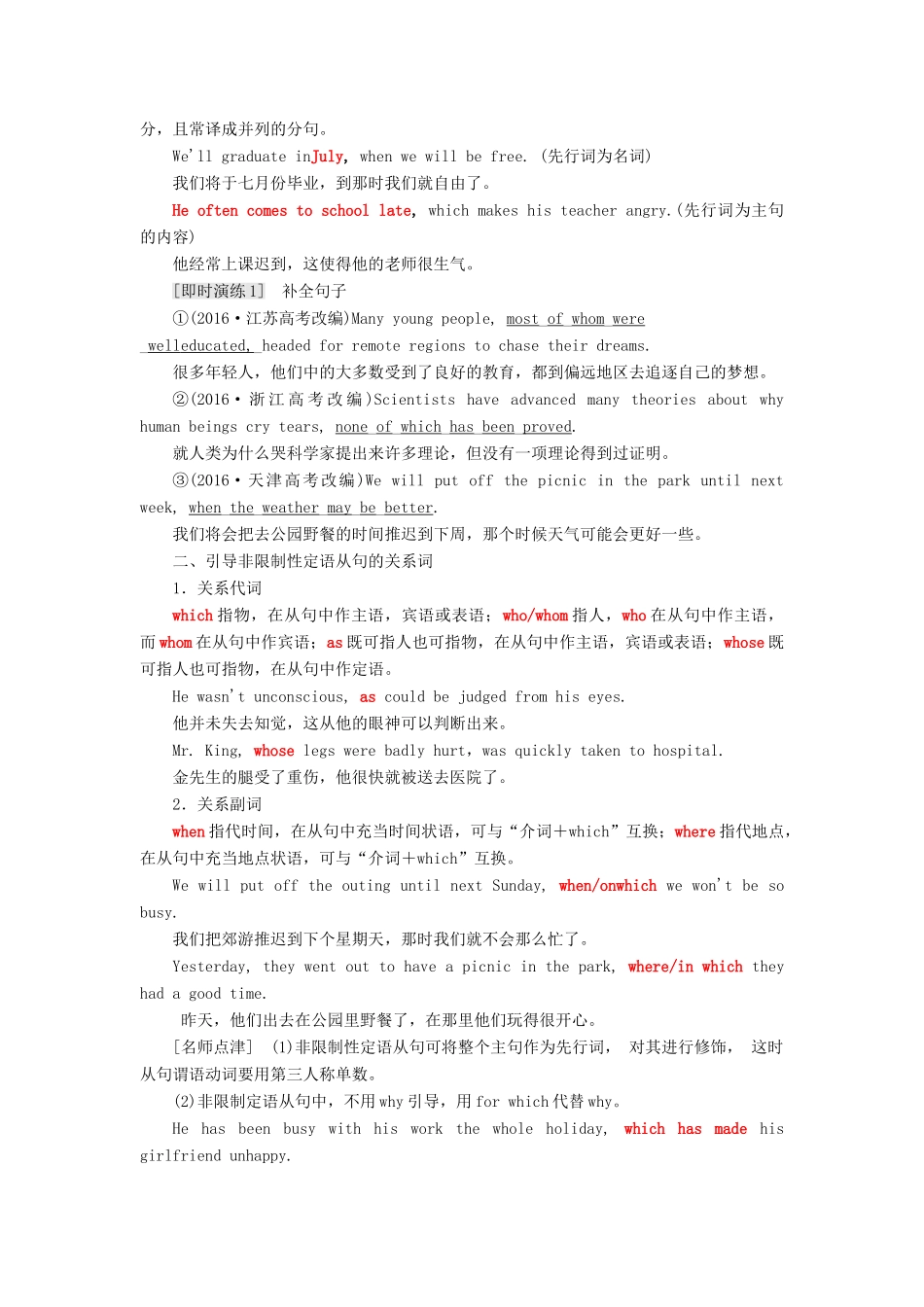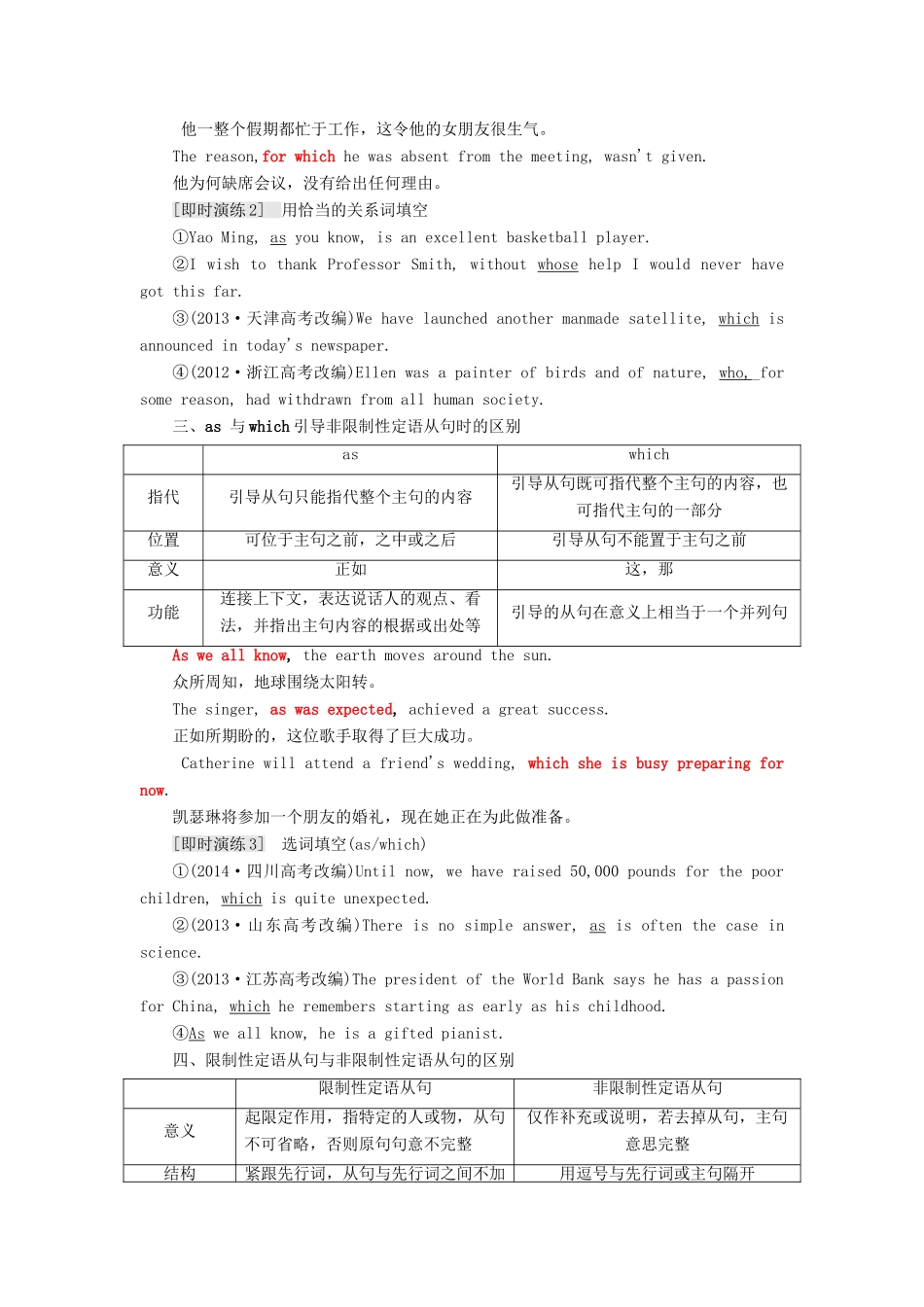Unit 5 Travelling abroadSection Ⅲ Grammar-非限制性定语从句语法图解探究发现用适当的连接词填空1.Xie Lei, who is 21 years old, has come to our university to study for a business qualification.2.She is halfway through the preparation year, which most foreign students complete before applying for a degree course.3.You have to get used to a whole new way of life, which can take up all your concentration in the beginning.4.Living with host families, in which there may be other college students, gives her the chance to learn more about the new culture.5.He wanted to know what I thought, which confused me because I thought that the author of the article knew far more than I did.[我的发现](1)以上句子皆为非限制性定语从句,从句与主句之间用逗号隔开。(2)非限制性定语从句可以置于主句之中(如句 1),前后有逗号隔开,也可以置于主句之后(如句 2、3、4、5)。(3)非限制性定语从句的先行词既可以是指人或指物的某一名词 (如句 1、2、3、4),也可指代整个主句的内容(如句 5)。一、非限制性定语从句的特点1.非限制性定语从句与先行词之间一般用逗号隔开,是对先行词的附加说明,如去掉,句子剩余部分的意思仍然完整。The children, who wanted to have a journey, were disappointed when the journey was cancelled.那些想旅行的孩子,都因旅行的取消而感到失望。That they will get married, which has not been announced, has spread around.他们要结婚的消息还没有被宣布,却已经被传得沸沸扬扬。2.非限制性定语从句的先行词既可为单个的名词或代词,也可为整个句子或其中一部分,且常译成并列的分句。We'll graduate inJuly, when we will be free. (先行词为名词)我们将于七月份毕业,到那时我们就自由了。He often comes to school late, which makes his teacher angry.(先行词为主句的内容)他经常上课迟到,这使得他的老师很生气。[即时演练 1] 补全句子①(2016·江苏高考改编)Many young people, most_of_whom_were_well educated, _headed for remote regions to chase their dreams.很多年轻...


